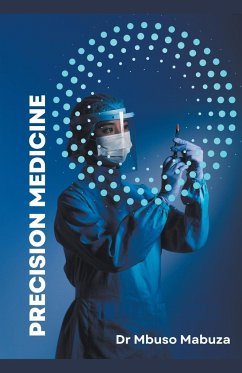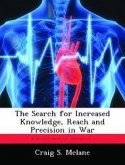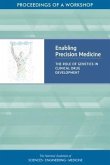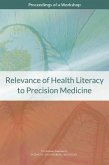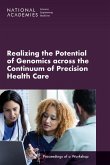With the present emerging artificial intelligence (AI) technologies, computational "machine learning" techniques for training and generalisation from data, and cutting-edge statistical techniques, will play a significant role in analysing multidimensional datasets generated by the new technologies of systems medicine. This progressively but rapidly leads to a "new taxonomy," generating new approaches for disease diagnosis, therapy, and clinical decisions, promising more individualised treatments and improved outcomes for patients. Indeed, if this approach becomes efficient in clinical practice, it provides a real paradigm change in health care, from reactive to proactive medicine. Precision medicine will allow big data patterns to emerge and algorithms to be developed, which, in turn, will allow more predictive and precise decisions about one's health to be made. Considering the rapid scientific advances in genomics and the vast adaptation of wearable technology and other quantified self-applications, it is likely only a matter of time before this data will play a larger and more integrated role in public healthcare services. Precision medicine, sometimes called personalised medicine, is an emerging technological advancement which aims to personalise prevention and treatment according to the genetic, environmental, and lifestyle variability of individual persons or a specific group of people with commonalities, as opposed to the 'one-glove-fits-all' approach which has less consideration for the uniqueness of the individual person or specific group of people with commonalities such as similar genetic changes in a tumour. Perhaps, the clearest utility of precision medicine approaches thus far has emerged from efforts to improve disease diagnosis with the promise of better treatment. This perspective emerged as a critique of medical practices characterised as employing reductionist and oversimplified methods of disease categorisation. Treatment is not the only aim of precision medicine, but prevention is also important as genetic testing for people with a family history of a certain illness such as diabetes mellitus, could also receive tailored preventive measures before those people even get sick. As such, precision or personalised medicine is driven not only by individual health data, but also by the availability of reference medical knowledge and evidence, that is, precision or personalised medicine is linking knowledge with individual health data for decision support. The current evolution of personalised medicine is happening at a fast pace, whereby it goes beyond therapeutics selection for a patient but into the realm of drug discovery, planning and delivery of care, and engagement between consumers and companies focusing on the improvement of healthcare. Such rapid evolution of personalised medicine is largely driven by advances in diagnostics, digitalisation, data and analytics operating across a broad scope. Nonetheless, precision or personalised medicine can be considered as the cornerstone of modern medicine. With so many hospital admissions being attributed to a 'one-size-fits-all' prescribing approach and adverse drug reactions being among the leading causes of death globally, not to mention the huge economic implications this creates, a tailored approach for every patient is needed. At the centre of this should be pharmacogenomics with the goal to improve drug safety and efficacy. Furthermore, therapy for each patient should be designed according to their personal characteristics, health status, lifestyle and pharmacogenetic profile. Ultimately, the goal of precision or personalised medicine is to contribute towards preventive, predictive and participatory health systems.
Hinweis: Dieser Artikel kann nur an eine deutsche Lieferadresse ausgeliefert werden.
Hinweis: Dieser Artikel kann nur an eine deutsche Lieferadresse ausgeliefert werden.

